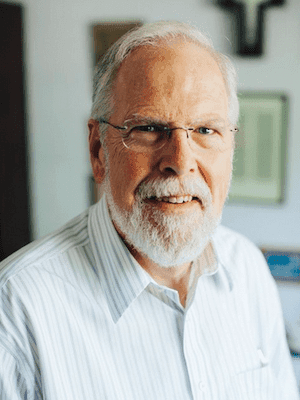Editor’s Note: The Baptist Center for Ethics’ 15th anniversary luncheon, June 22 in Atlanta, honors the legacies of T.B. Maston and Henlee Barnette. Today Jim Holladay, a former student and friend, profiles Barnette.
The first time I saw Henlee Barnette, I wondered, “Who is this strange man who wears his watch on the outside of the sleeve of his sports coat and moves through the halls of Southern Seminary like he’s on a mission?”
Little did I know that the answer to that question would come through half a lifetime of getting to know this truly remarkable servant of God.
As a student at The Southern Baptist Theological Seminary in the early ’70s, I had Dr. Barnette for two ethics classes: “Introduction to Christian Ethics” and “Ministerial Ethics.” The primary text book for the intro class was Barnette’s book Introducing Christian Ethics, but the real text was the richness of his life experience.
We heard stories of his growing up in North Carolina, working in the textile mills–a way of discussing the plight of workers in America, you see. We heard about his encounters with the FBI as a direct result of one of his son’s opposition to the war in Vietnam. And we heard about his debates with Joseph Fletcher and his dear friend Clarence Jordan.
I admit that as a young man, who had grand schemes of a vocation in academia, I had little patience with these stories. I wanted theories, principles, propositions. Only later would I realize that truth is best observed when it is incarnate, when it manifests itself in the real world of flesh-and-blood struggles with matters of good and evil. Only later would I learn that these stories were conveyors of the biblical witness that was central to all of Dr. Barnette’s teaching.
Looking back on those classes years later, I came to appreciate something else about Dr. Barnette’s teaching style. He would often provoke us, in his uniquely blunt but humble manner, to contend with him and with each other. When I got to know him later on, in a different role, I learned that he loved these discussions, not only because it triggered our learning, but his as well.
Dr. Barnette retired from Southern about the time I graduated with my M.Div. He went on to teach at the University of Louisville Medical School. I went to work in an inner-city church and ministry center.
Over the years we became friends. I can’t explain how that happened, but somewhere along the way Dr. Barnette included me in his circle of ethicists and social activists. Along the way he stopped being Dr. Barnette and became simply Henlee. When he and Joe Priest Williams decided start a monthly ethics dialogue, known as Barnette’s Buddies, at his house, he included me on the invitation list. I was honored and humbled.
Perhaps my fondest recollection of Henlee is that he became a great encourager to me. My work in the inner city often called on me to be an advocate and an activist. As a social minister in the SBC during the ’80s and ’90s I often found myself at odds with denominational insiders, as well as those trying to take over the SBC. Some considered me a troublemaker.
On one occasion when I was concerned that maybe I was going too far out on a limb, Henlee introduced me to someone one as a Baptist prophet in the tradition of Clarence Jordan. It wasn’t true, of course, but it felt good to be likened to one of my heroes in the faith. It was even more encouraging to be included in the troop of biblical activists that included the likes of Henlee and Jordan.
As we met together monthly in the living room of Henlee’s house, I witnessed his gift at encouraging each and every person. Those of us who gathered were constantly amazed at his inquisitiveness and his keen insight. Often the discussion at one of our meetings would be the spark that would cause him to write a letter or begin researching and writing an article. His failing health rarely slowed him down. When the doctors curtailed his public speaking, he seemed to redouble his writing.
This strange little man that I saw moving through the halls of Southern Seminary with his watch on the outside of the sleeve of his sports coat was indeed a man on a mission. In the Scriptures, through the life of Jesus Christ, he had seen a vision of the Kingdom of God. He wanted his students, his friends, the members of his church, people he had never met, and even his enemies, to catch a vision of the Kingdom. I sensed he wanted to share his vision not only through his teaching, but through his life.
I count it a privilege to have been part of a company of people–seminarians, clergy, and laypersons–who were loved, taught and encouraged by Henlee Barnette. He has been called a pioneer, a trailblazer, a prophet, Baptist radical, etc. And he was all that and more. But to many of us who knew him, he was simply Henlee–our teacher, friend, and encourager.
Jim Holladay is pastor of Lyndon Baptist Church in Louisville, Ky.

